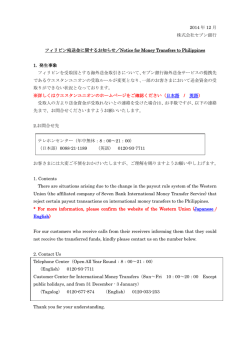
Foreword
Foreword ふげき 研究論文 金賛會の神話論が済州島の創世神話に関心を寄せている。神祭のたびごとに巫覡の口承によっていまもひと びとの生活のなかによみがえる神話であることがきわだっており、筆録された創世神話(たとえばわが国の 記紀神話)があたえがちな疎隔感がないという。書かれた記録は後世を潤すといわれるが、書かれることは じつは忘れ去られることなのではないか。さまざまにもの思わせ、読むものの襟度を拡げずにはおかない広 闊な比較神話論である。 陳瑞英の対照文法論は中国語の方位詞「上」とそれに応当する日本語の「うえ」を比並し、両者の異同に あざやかな照明をあてている。記述の範囲を両方位詞の空間用法に限定した分、主題を深耕しえて、堅牢か つ緻密な論議が収穫されている。ページを逐うごとに、薄明が明るんでいくような知的爽快感がある。 TA 参加授業(韓国語)の実態を調査した金成妍・牧野美希とビジターセッション(日本語)に対する履修 者意識にさぐりをいれた井上佳子・髙尾まり子・寺嶋弘道・戸坂弥寿美は「教師プラス」による授業実践 が、諸種改善の余地をのこしつつも、総じて「教師オンリー」の実践よりも好もしいという主張する点で、 呼吸をひとつにしている。わが国では永く「オンリー」が語学教育の王道であった。が、いまやそれが胡坐 をかきつづけられないほどに「プラス」の授業風景が時流となりつつある近状をうかがい知ることができ る。ひろがりつつある授業態の変容をふまえて教師の役割はどう変わらねばならないかという宿題を背負わ され、深沈と考え込む向きもあるのではないか。 大喜多紀明のアイヌ語談話分析は回を重ねることがふるくなった。今次は樺太アイヌの口承テキストを資 材とし、そのストーリー展開のなかに埋伏している交差対句を摘出している。潜在する交差対句をアイコニ ックな図式として形象化する記述手法はこの論者固有のものである。 Acknowledgment 小誌編集委員の一人が他大学に去った。その栄進を寿ぐとともに、これまでの尽力に満腔の謝意をもって酬 いたい。後継者の獲得に時日を要するため、2014 年度前期のポリグロシア刊行はみあわせざるをえなくなっ た。27 巻は 2015 年 3 月に刊行される。不都合をおかけすることをあらかじめ詫びておかねばならない。 One of Polyglossia’s editors left APU in March 2014. Besides celebrating his departure for a new position, the journal would like to use this occasion to extend its sincerest appreciation for the services he has hitherto rendered. As it takes time to acquire a new professional, Volume 27 will be published in March 2015 instead of October 2014. On behalf of Polyglossia, the current writer apologizes for any inconvenience this is likely to cause prospective contributors. Editors March 20th 2014 編集委員会 2014 年 3 月 20 日 ii ii 結辞 Report on Mario Perez guides us through the four-lesson cycle he devised to teach a listening and speaking course using authentic materials. He explains his rationale for using authentic material with familiar activities such as clozed activities, dictoglosses and role play, in terms of limiting the cognitive load on the students, maximizing their motivation and providing them with useful, relatively natural input and output opportunities. The four-class cycle described provides a useful template for classes that encourage student engagement and a collaborative approach to language learning. g n i h c a e T Research Papers Lance Stilp’s paper explores narrative inquiry as a tool for understanding the realities of second language learners, specifically looking at the experience of an adult learner who is learning Japanese as a second language. His paper examines the roles of power, identity and social learning in this process. In his paper about the use of drama in second language learning and teaching, Matthew Barbee gives an account of the evolution of drama in the classroom. He makes the case for drama-based teaching by discussing its effects on student motivation and efficacy, and outlines how it fits into today’s post-method, communication-based, learnercentered curricula of L2 language learning. In his first paper Peter Roux provides a detailed analysis and discussion of the word ‘green’ as it is used in two corpora; one political, one scientific. He employs a critical discourse analysis (CDA) framework alongside other methods, including Bill Louw’s technique for identifying a word’s semantic prosody, to examine the behaviour of the word in different contexts. In this way, the author succeeds in building an objective account of the word ‘green’, its connotations and the roles it plays in contemporary political and scientific discourse. This paper will be of interest to anyone with an interest in corpus linguistics and CDA, and provides a robust approach that could be replicated in similar corpus-based lexical analyses. Peter Roux’s second contribution to this volume presents a comparative study of Afrikaans and English and how they have become established as official languages in South Africa and other areas of the world, respectively. Incorporating a broad range of views from the World Englishes literature, this paper should be relevant to anyone with an interest in the spread of English and its status as a global language. In particular, the parallels it draws between the South African context and the growing importance of English as an International Language (EIL) in contexts in other parts of the world make for some thought-provoking discussion of the ideological implications for EIL’s expanding circle of users, as well as for the future survival of indigenous languages.
© Copyright 2026
